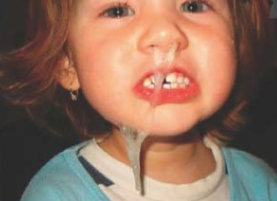Money is a good way to get an administrator’s attention.
Monty Python figured this out in 1983’s, The Meaning of Life.
In The Miracle of Birth bit, as a laboring woman is wheeled into the delivery room surrounded by the machines meant to assist birth, the hospital administrator, Mr. Pycroft, arrives.
“Wonderful what we can do nowadays.
[ping]
 “Aah! I see you have the machine that goes ‘ping’.
“Aah! I see you have the machine that goes ‘ping’.
“You see, we lease this back from the company we sold it to, and that way, it comes under the monthly current budget and not the capital account.
[applause]
“Thank you. Thank you. We try to do our best. Well, do carry on.”
Tina Rosenberg of the N.Y. Times reports on the health blog today that handwashing compliance in hospitals generally sucks, provides a thorough overview of why it sucks, and notes that hospitals are now paying more attention to the matter: money.
“In 2008, hospitals were told that Medicare would no longer reimburse them for the cost of treating preventable hospital-acquired conditions it calls “never events,” which includes many kinds of hospital-acquired infections. The new health care reform bill instructs states to do the same with Medicaid. Many insurance companies also now refuse to pay for never events. This tends to concentrate the minds of hospital executives. …
“In the last year or two, several new ways to promote hand-washing – all things that beep – have made their debut: HyGreen, BioVigil, Patient Care Technology System’s Amelior 360 and Proventix’s nGage are some of them, but there are others. Some  are spinoffs of systems widely used to track hospital equipment (this is how hospitals can find a wheelchair when it is needed). All employ new technology that can detect alcohol — which in hospitals is a component not only of rubbing gel but also soap.
are spinoffs of systems widely used to track hospital equipment (this is how hospitals can find a wheelchair when it is needed). All employ new technology that can detect alcohol — which in hospitals is a component not only of rubbing gel but also soap.
“They work like this: every health care worker wears an electronic badge. When she washes her hands or uses alcohol rub, a sensor at the sink or dispenser or her own badge smells the alcohol and registers that she has washed her hands.
“Another sensor near the patient detects when her badge enters a room or the perimeter around a patient that the hospital sets. If that badge shows that her hands were recently washed, it displays a green light or something else the patient can see. If she hasn’t washed, her hands, the badge says so and emits a signal to remind her to do so. The sensor also sends this information to a central data base. Information about the hand-washing practices of a particular unit, shift or individual is instantly available.”
There is some evidence the systems work, but they are also expensive.
And sorta useless without a culture change.
Rosenberg writes any technological fix should be accompanied by “creating a culture of accountability, redesigning hand hygiene systems to make hand-washing easy and automatic, and other strategies.”

 We prefer shock and shame
We prefer shock and shame